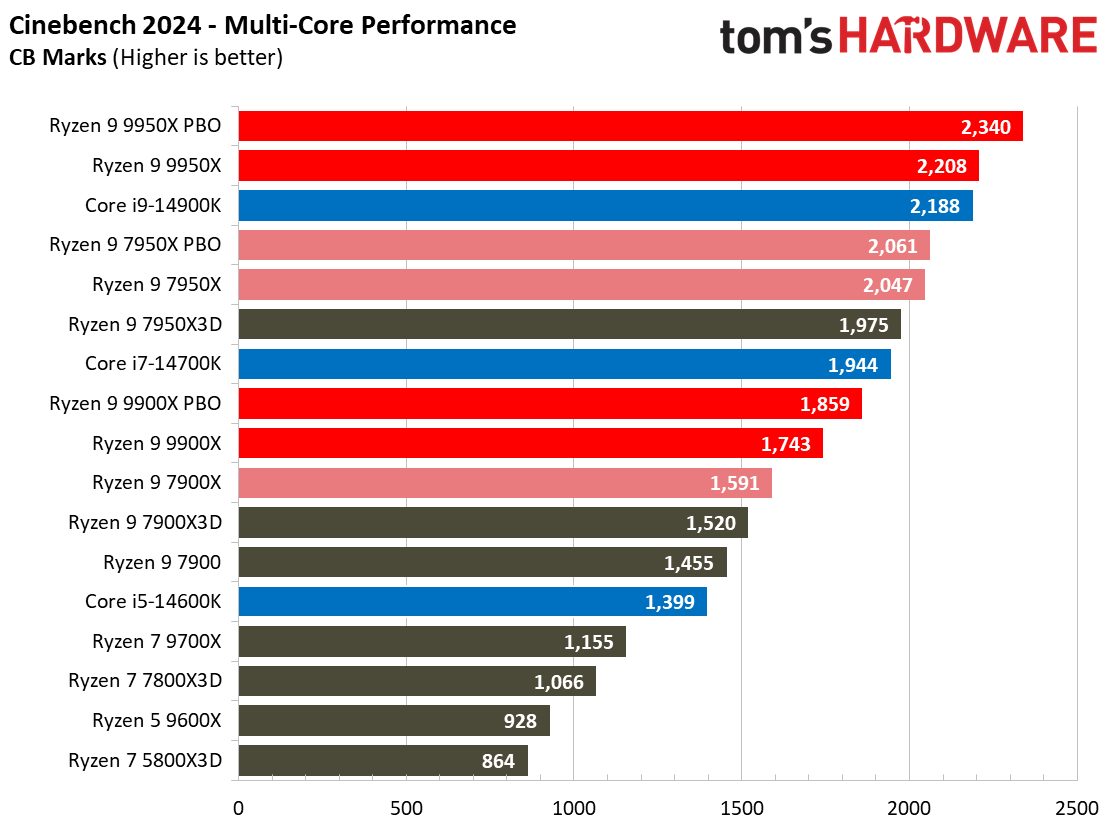Tony Yu (via HXL), Asus China’s general manager, created a “fanless” Ryzen 9 9950X PC featuring Asus components that seemingly performed better than the same chip operating with a liquid cooler. Yu benchmarked the system in Cinebench R23. Temperatures were also in check, running at up to 95 degrees Celsius.
Yu recorded a Cinebench R23 multi-core score of 42,451 points at a maximum operating temperature of 95 degrees Celsius. For context, we tested the Ryzen 9 9950X at launch with a Corsair H150i RGB 360mm AIO liquid cooler and saw a multi-threaded score of 41,929 points in the same benchmark. However, the two test systems don’t share the exact specifications or testing environment, and it’s unclear if Yu used performance-boosting settings like PBO or a modified curve, so there are bound to be performance deltas. Nonetheless, seeing how the Ryzen 9 9950X performed so well is still interesting. After all, it used Noctua’s NH-P1 passive CPU cooler, so we didn’t expect the chip to overheat.
The build was assembled inside an Asus PA401 mid-tower ATX chassis, one of two cases Yu unboxed. The other was an Asus PA602 case. Both chassis are branded under Asus’ ProArt nomenclature, a sub-brand targeting content creators and professionals rather than gamers.

Yu used Noctua’s NH-P1 passive air cooler, a massive aluminum cooler that does not require active cooling fans. Despite being a “fanless” PC, the PA602 chassis’s three internal case fans were left inside. This inevitably gives the air cooler significantly more cooling capability than operating in a completely passive environment.
Despite not having any cooling fans — at least on the cooler itself — Noctua’s fanless cooler can cool AMD’s flagship 16-core processor. We would have loved to see Yu provide completely passive Cinebench R23 results without the case fans turned on, but it is a good result regardless. The lack of any cooling fans on the cooler itself is still advantageous in and of itself. It should yield lower noise levels than CPU air coolers and AIO liquid coolers, which require active cooling fans. The latter generates additional noise from the pump that circulates liquid through the radiator.
Read full post on Tom’s Hardware
Discover more from Technical Master - Gadgets Reviews, Guides and Gaming News
Subscribe to get the latest posts sent to your email.








